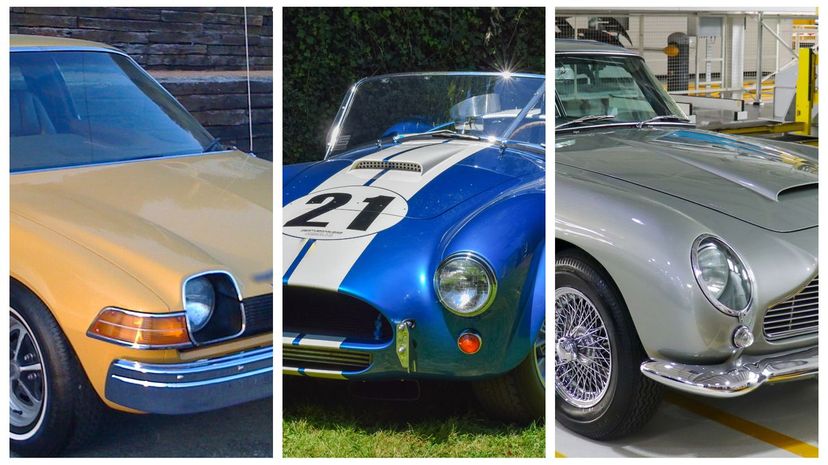
About This Quiz
Some people are bigger car fans than others. And that's just fine, right? Not everyone really gets into the nuts and bolts of cars and automotive history. We're pretty confident that most people can recognize a Corvette when they see one, or even a Ford F-150, but it definitely takes a certain kind of car fan to recognize something more exotic like a Lykan HyperSport or a Stout Scarab when it rolls down the highway. And while a Cadillac Escalade may be easy to pick out of the crowd, it is going to require a little more passion for the auto industry to know an Alfa Romeo 33 Stradale or a Lancia Stratos.
If you're that car fan - a true car fan - then this is 100% the quiz for you. This isn't a cakewalk or a Sunday drive, if you will. This one will test your limits and your knowledge all the way back to the Ford Model T.
So we're throwing down the gauntlet with this challenge. If you can name even a quarter of these cars, then you'll definitely be proving your stuff. Why wait? Shift into gear and see how well you do with this true car fan quiz!
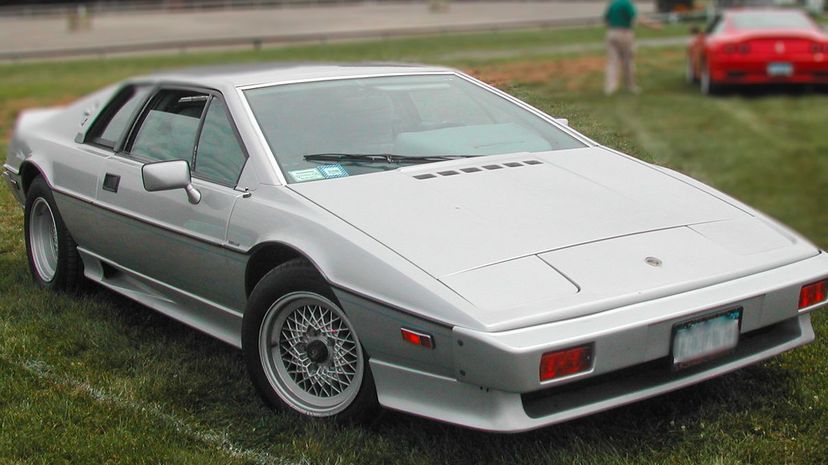
Famous for what's known as the "folded paper" design, which was marked by polygonal features, the Esprit replaced the Europa in the Lotus lineup. The Series 1 from the 1970s was memorable for its wedge-shaped design and lightweight fiberglass body.
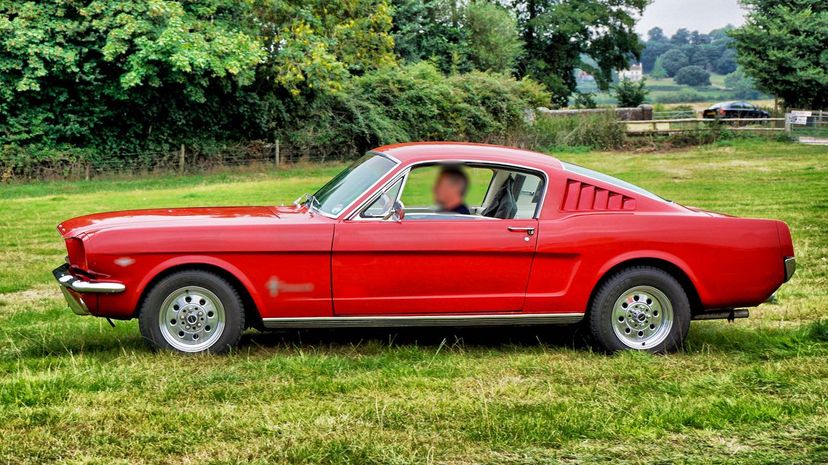
Ford's Mustang has been one of the most popular models since it debuted in the model year 1965. Originally designed to be affordable, small and appealing to women, the Mustang pioneered the pony car segment, which would become one of the most competitive of the '60s and '70s.
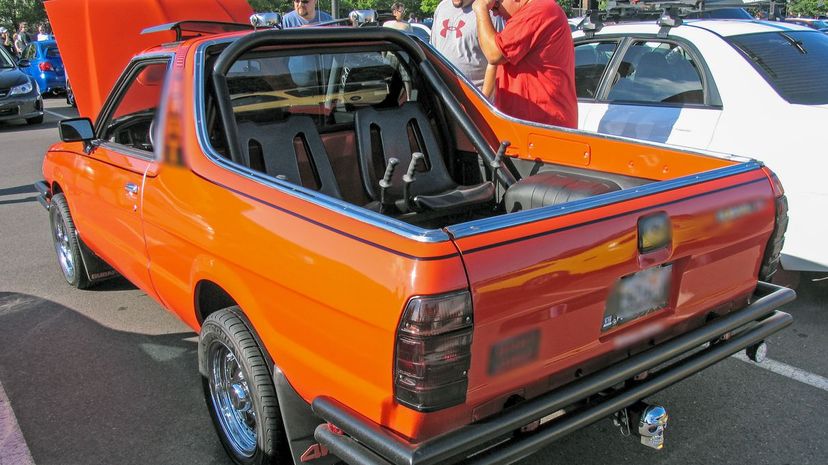
The Subaru BRAT, which stands for Bi-drive Recreational All-terrain Transporter, welded a pair of jumpseats in the back so it could be classified as a passenger vehicle and avoid some taxes that were reserved for light trucks.
Advertisement
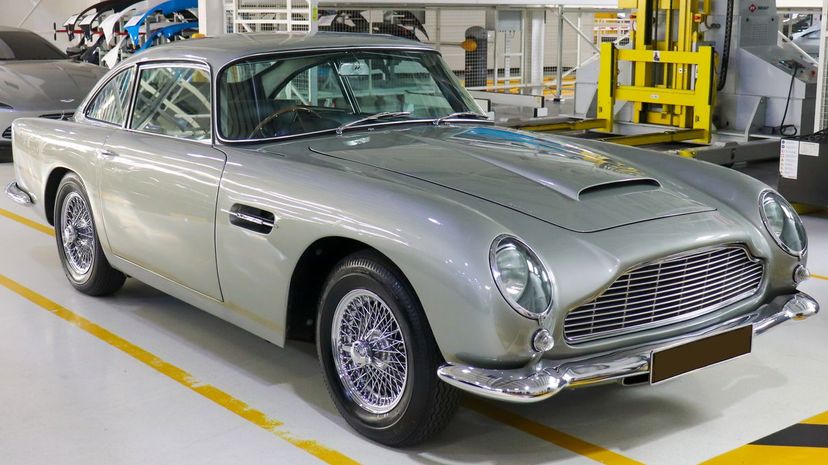
James Bond's famous Aston Martin DB5 was produced from 1963 to 1965. They only made 1,059 for the general public - but James Bond is not the general public, which is why they keep making him new models every time another movie comes out.
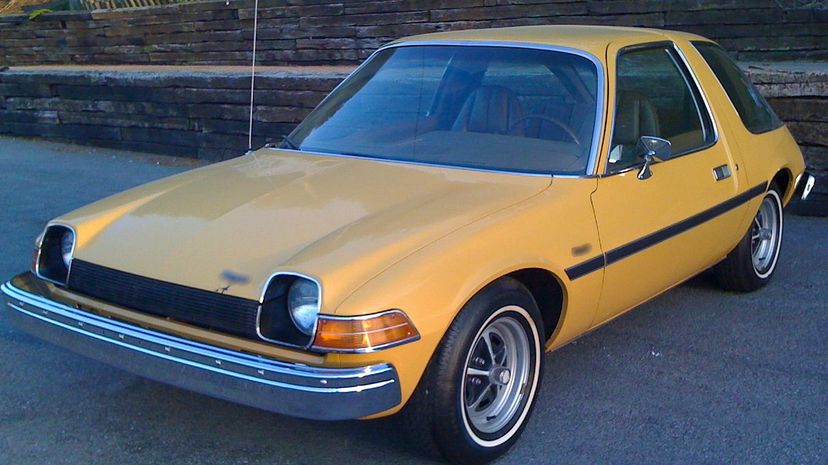
The AMC Pacer was made in factories that were set up for full-size cars, so they were manufactured to a full-size width, but not length. The passenger door was made slightly longer than the driver's side door as well, all of which added to the idea that the car was larger and roomier than most compact cars of the time.
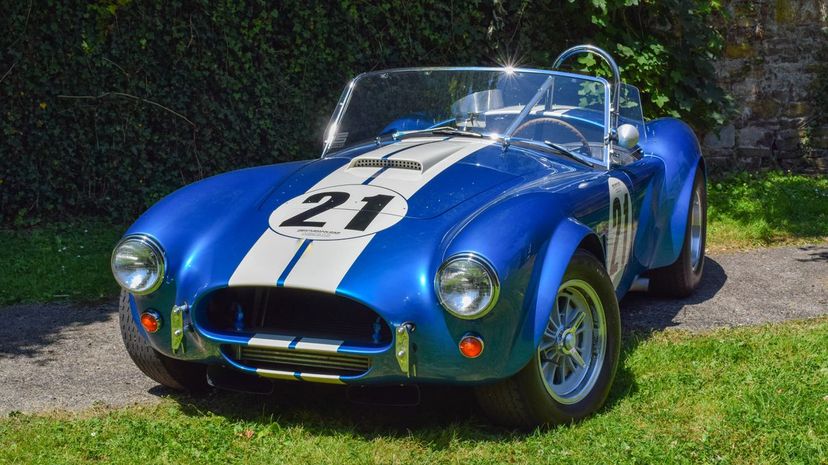
The AC Cobra is better known as the Shelby Cobra in North America, designed by Carroll Shelby, who also designed a famous Mustang that bears his name. Shelby actually approached Chevy to use their engine first, but they were afraid of competition for the Corvette, so they said no.
Advertisement
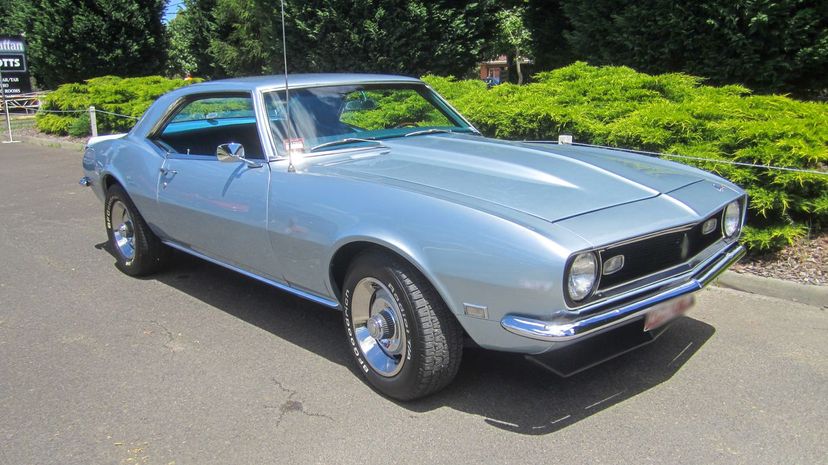
Chevy's extremely popular entry into the pony car segment, the Camaro, has been a consistent performer since 1967. It's also had its fair share of pop culture exposure, but none nearly so recognizable as its turn as the Transformer Bumblebee in the Transformers movies. Ironically, Bumblebee was originally a VW Beetle.
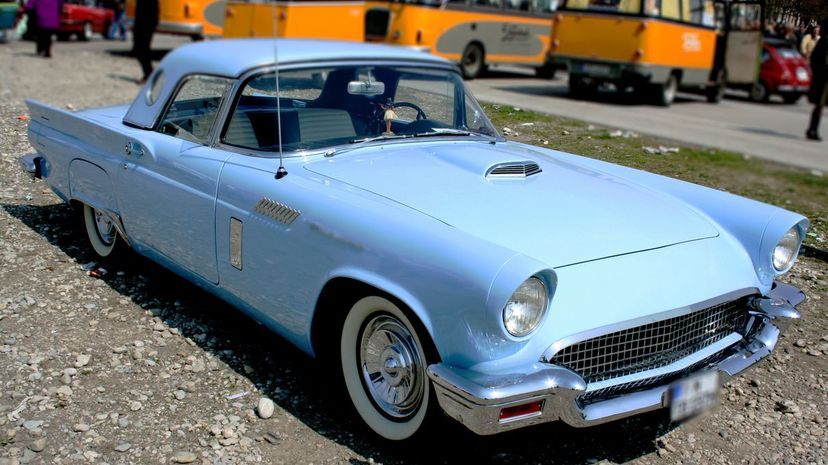
The Ford Thunderbird is one of the most iconic cars of the 1950s and 1960s. While only a two-seater at first, in 1958 Ford added a second row of seats and effectively started the personal luxury car segment in America.
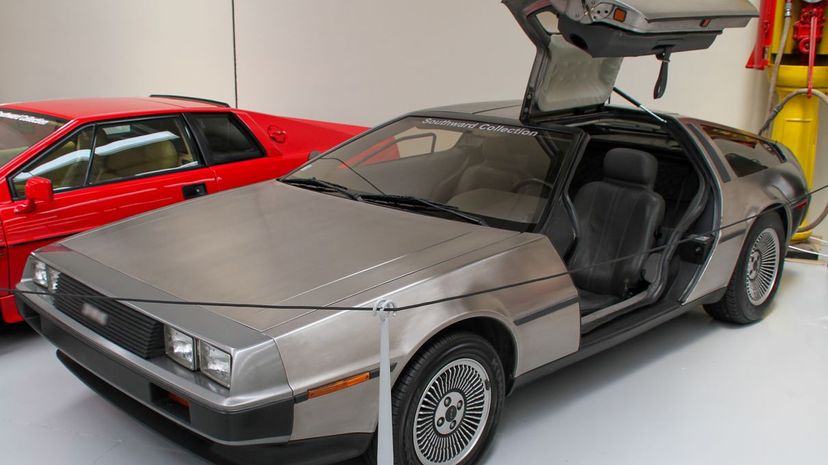
The famous DeLorean from "Back to the Future" almost never was. The script was written with a fridge in mind as the time machine, but producers thought a car would be cooler - and wouldn't tempt kids to climb into empty refrigerators. That was likely a very good call on their part.
Advertisement
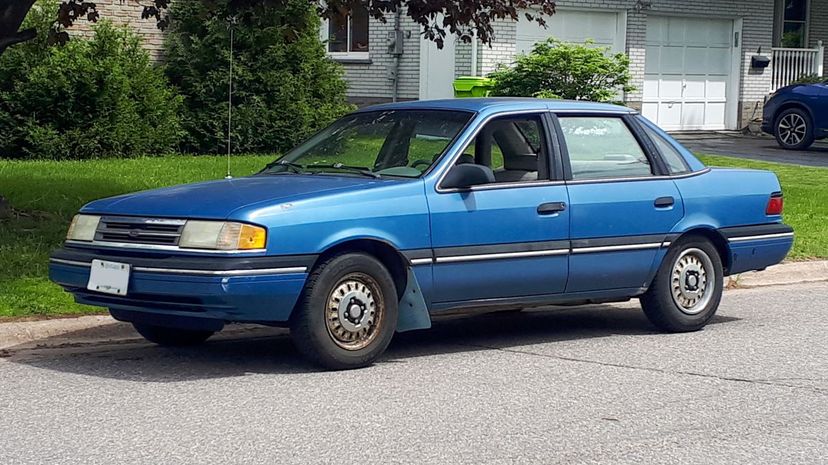
The Ford Tempo may be forgettable by today's standards, but in 1984 it was an innovation in fuel economy and styling. From 1984 until 1994, it was one of the top-selling cars in America, even outselling the perennially popular Toyota Camry.
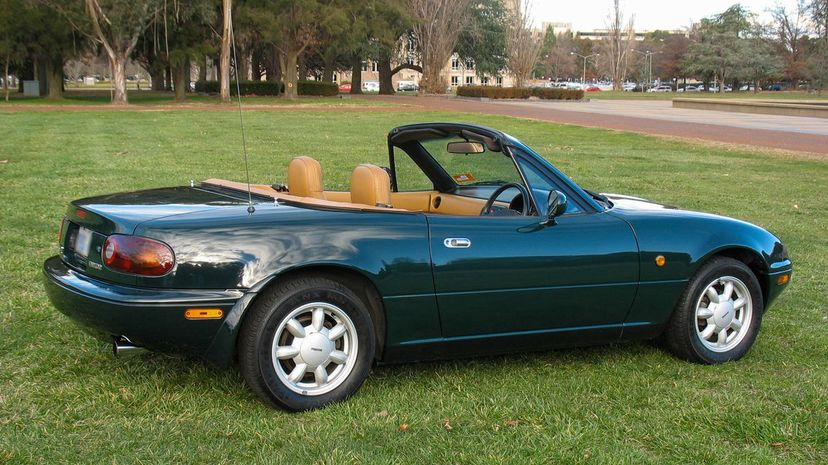
Sold in Japan as the Mazda MX-5, the Mazda Miata was first made in 1989, and it debuted at the Chicago Auto Show. It proved to be remarkably popular and is actually the best-selling two-seat convertible sports car ever made.
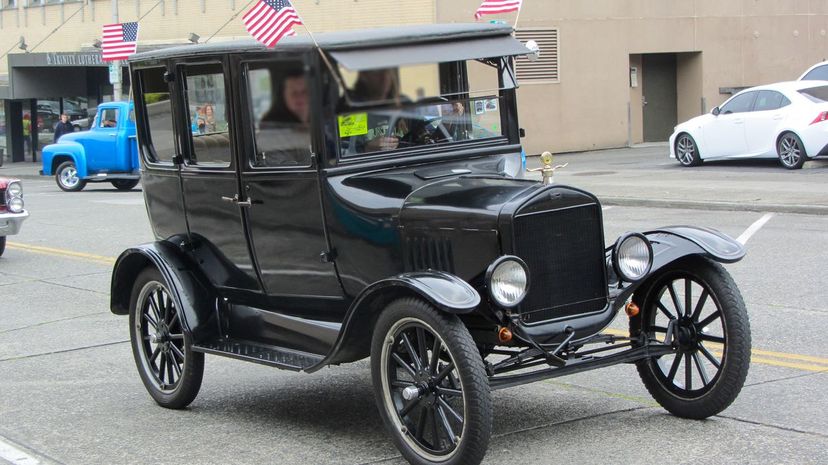
Arguably the most important and influential car in automobile history, the Ford Model T set the standard for production and was the first car readily available to the buying public. By 1927, Ford had made over 15 million of these cars.
Advertisement
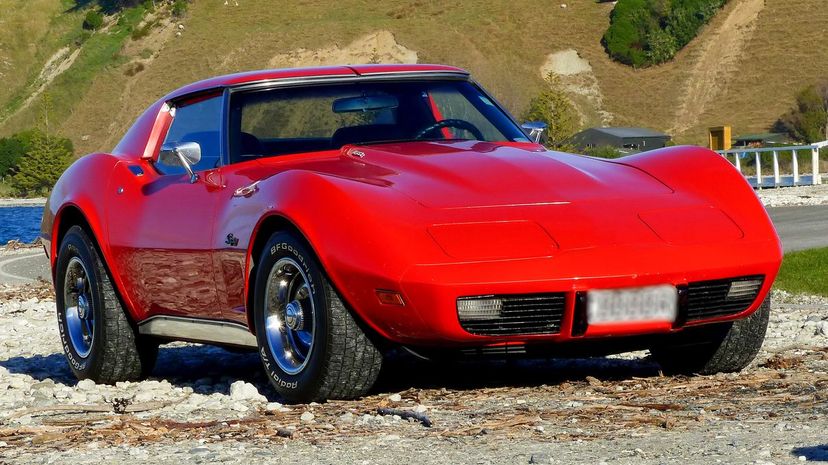
The most popular sports car ever made and sometimes called "America's sports car," the Chevy Corvette was named for a small warship. It was featured in the 1960s TV show "Route 66," which aired between 1960 and 1964.
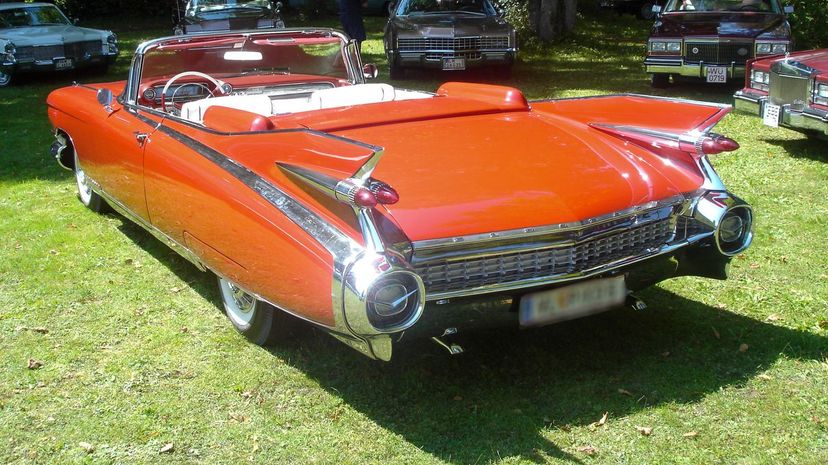
Cadillac's Eldorado had a 50-year lifespan, from 1952 until 2002. The company held an internal competition to name a new vehicle for Cadillac's golden anniversary, and a secretary from the merchandising department came up with the winning name - Eldorado.
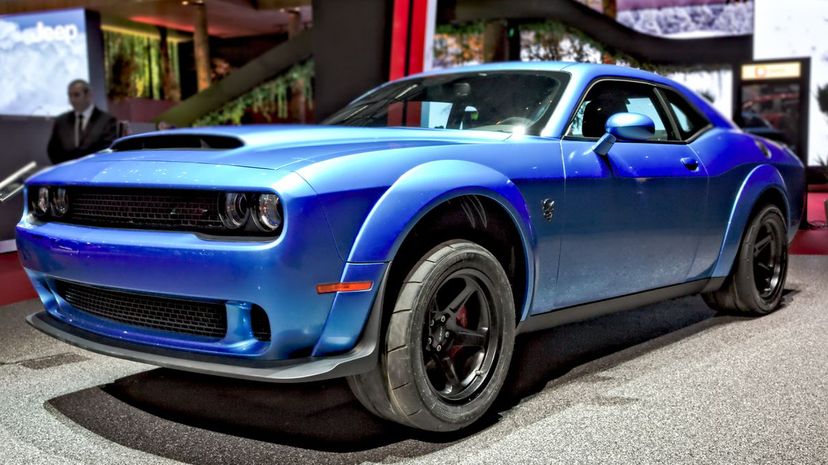
The Dodge Challenger SRT Demon is a variant of the SRT Hellcat, featuring a 6.2-liter V8 engine and up to 840 horsepower. The power of the Demon can't be overstated, but to give an idea of what it's like, this is the first production car ever that can perform a wheelie.
Advertisement
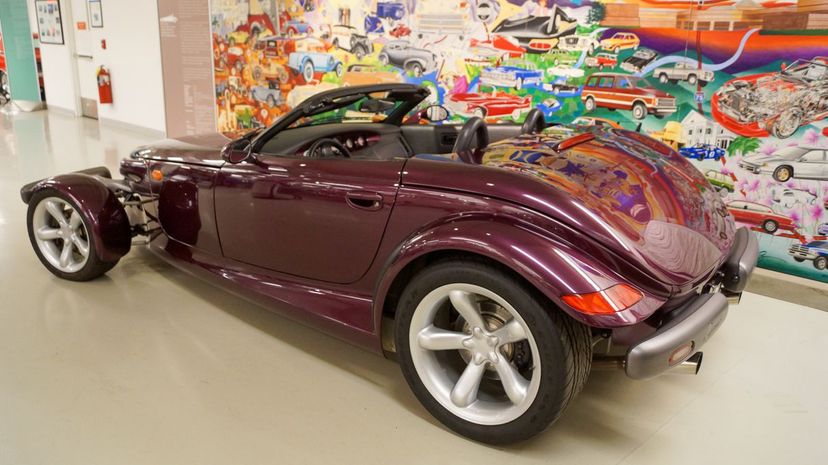
The Plymouth Prowler was manufactured from 1997 until 2002 and tops the list of unique looking street vehicles produced by a major manufacturer. Later year models could go from 0 to 60 in 5.9 seconds, but top speed was electronically limited to 126 miles per hour.
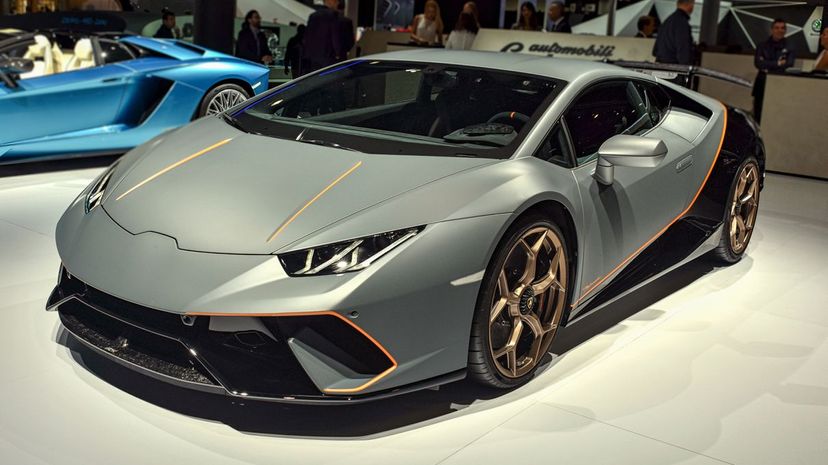
Lamborghini's logo features a bull, and bullfighting has long been involved in the history of the company when it comes to naming cars. The Huracan is just the latest model, produced since 2014, that's named for a fighting bull.
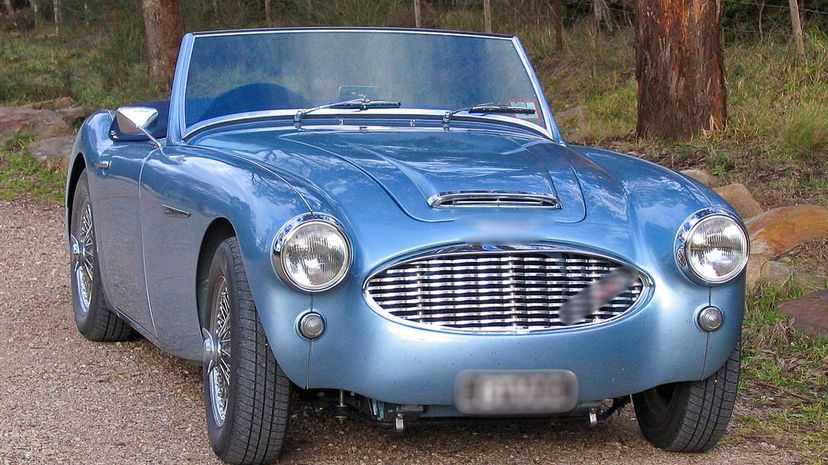
Produced until 1967, the Austin Healey 3000 is best recognized from its extensive racing history. It found success on multiple tracks, from Le Mans to Sebring to the Mount Panorama Circuit. The Mini Cooper essentially replaced it on the racing circuit in 1965, however.
Advertisement
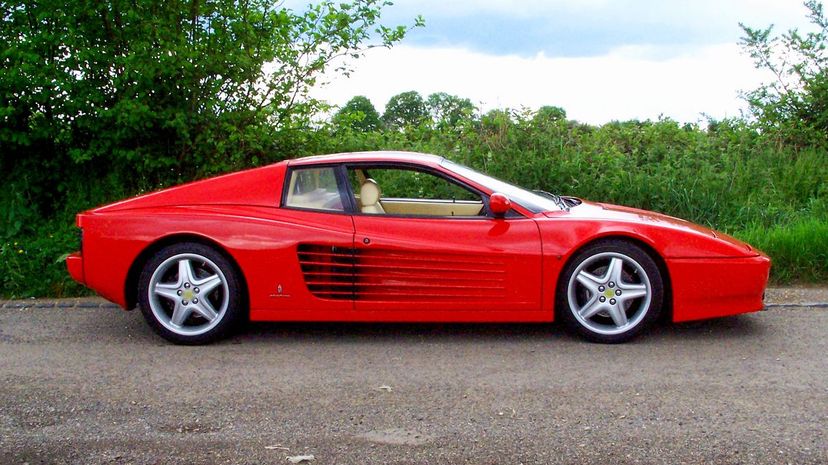
Ferrari's legendary Testarossa was a pop culture phenomenon in the '80s and '90s, making appearances in video games and on TV shows like "Miami Vice." It was a powerful force on the road and the last Ferrari to feature a flat-12 engine.
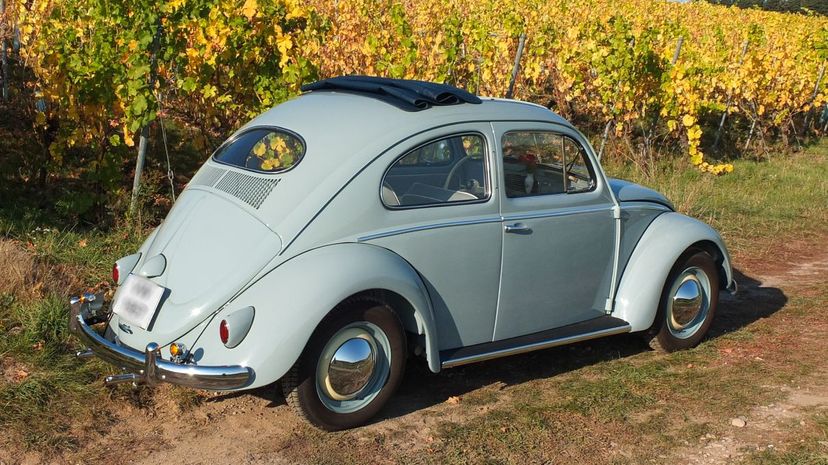
Volkswagen's Beetle was one of the most popular cars in history and was produced for 65 years. By 1972 the Beetle had outsold the Ford Model T by cracking 15 million units, becoming the new best-selling car of all time.
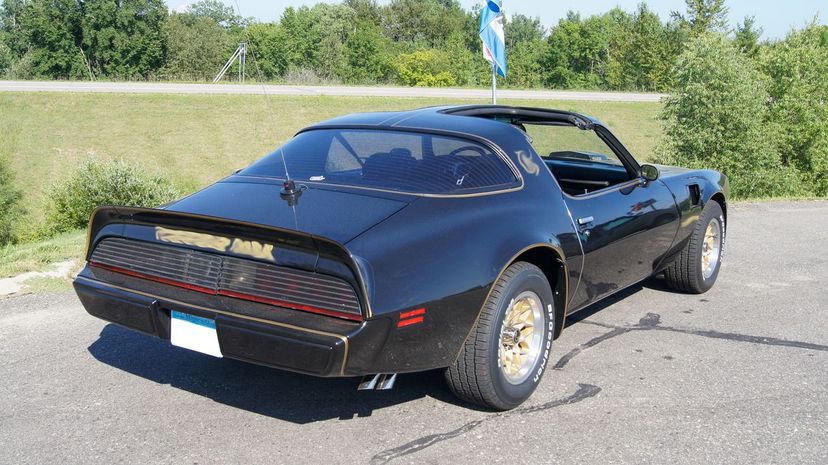
The Pontiac Firebird Trans Am was most easily recognizable from the giant bird design on the hood that was something of a standout. In pop culture it wasn't just the Bandit's car in "Smokey and the Bandit," but it was also KITT, the car from "Knight Rider."
Advertisement
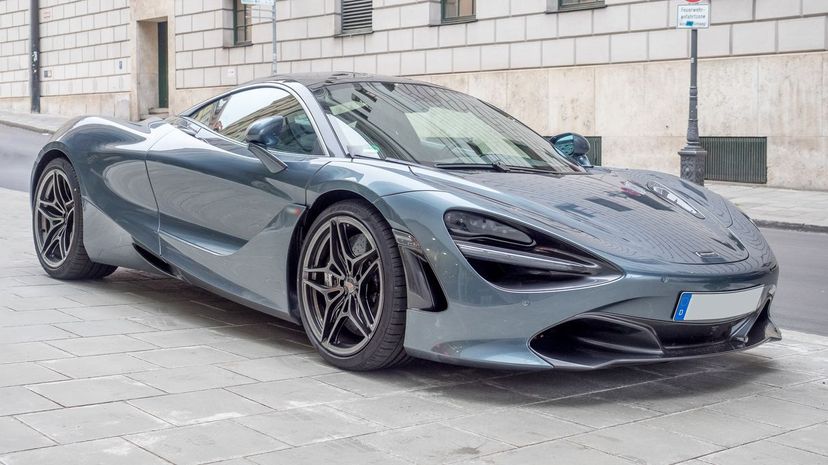
The McLaren 720S has been in production since 2017 and is one of the fastest cars on the road. It can go from 0 to 60 miles per hour in 2.9 seconds and hit a maximum speed of 212 miles per hour. It also features the very cool twin-hinged dihedral doors McLaren is famous for.
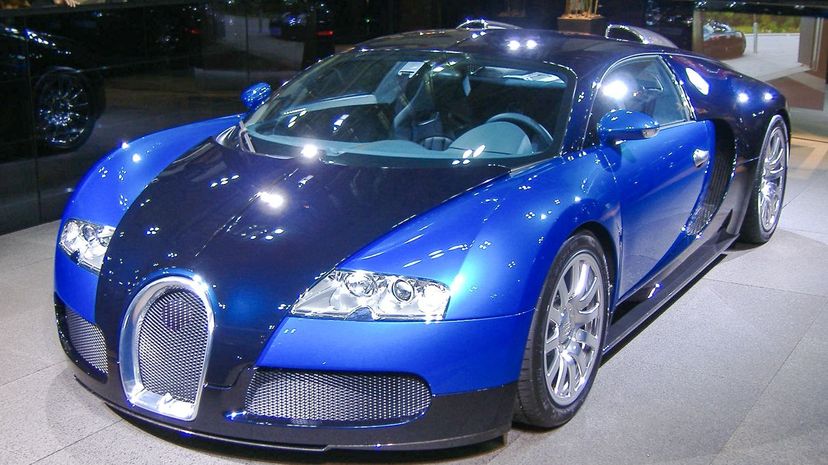
The Bugatti Veyron was manufactured from 2005 until 2015 in one form or another. Buyers could actually use a tool on the website to fully customize the vehicle and its colors, both inside and out. The Super Sport Veyron took the Guinness title for the fastest production car in the world, with a top speed of 267.8 miles per hour.
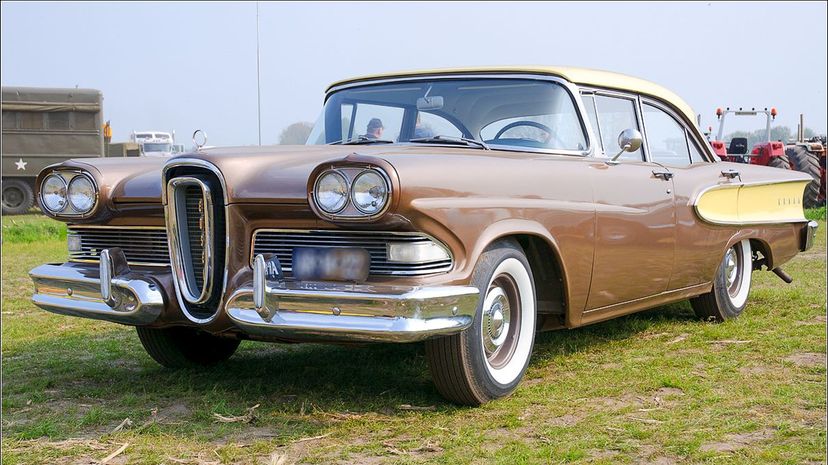
Named for Henry Ford's son, the Edsel was overhyped by Ford before it came to the market, with Ford even planning "E-Day" for the launch. They released teasers for an entire year before the car's debut. Unfortunately, it was an abysmal failure. The vertical grille was considered ugly, plus the car had performance issues and a steep price tag. The Edsel ended up costing Ford millions.
Advertisement
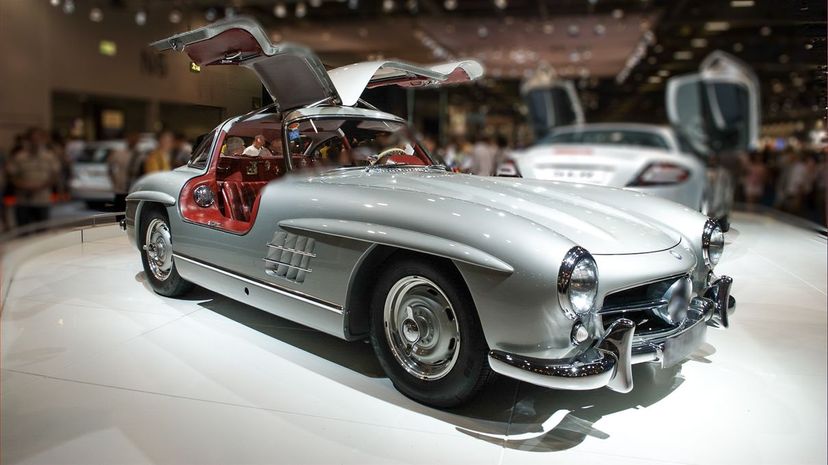
One of the most popular models of Mercedes-Benz ever, the 300SL featured those remarkable gullwing doors that most of us associate more with the DeLorean, which was designed many years later. At a top speed of 163 miles per hour, the 300SL was the fastest production car ever, at the time it was produced.
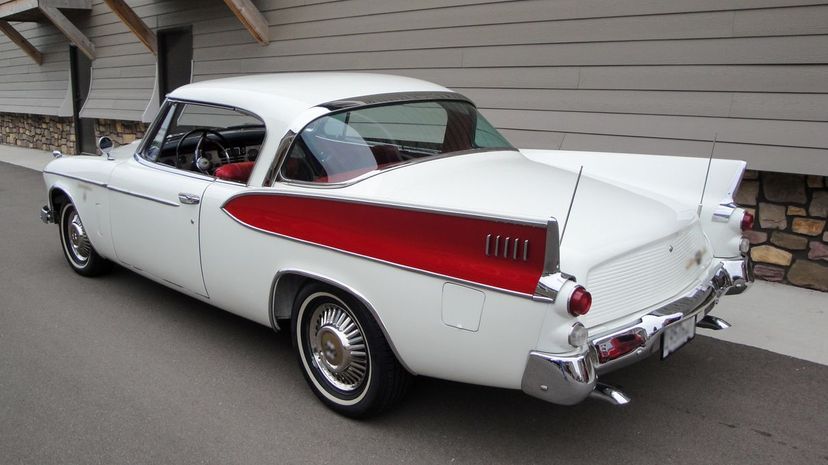
The Studebaker Golden Hawk was a beast of a car, with a 352-cubic-inch, 5.8-liter V8 engine. Head to head against the Chrysler 300B, the Ford Thunderbird and the Chevy Corvette, the Studebaker beat them all in acceleration from 0 to 60 and at hitting the quarter mile.
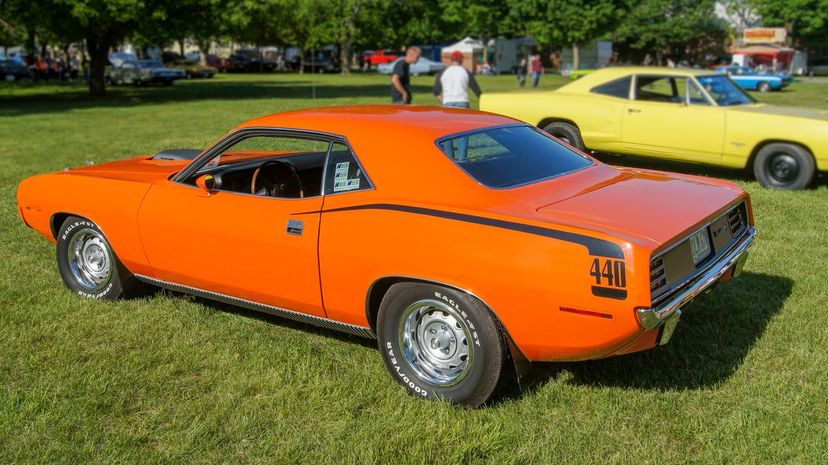
The Plymouth Barracuda, much better known as the Hemi 'Cuda, was a pony car designed to compete with the likes of the Ford Mustang. Plymouth knew the Mustang was being developed, so the Barracuda was fast-tracked to hit the market around the same time.
Advertisement
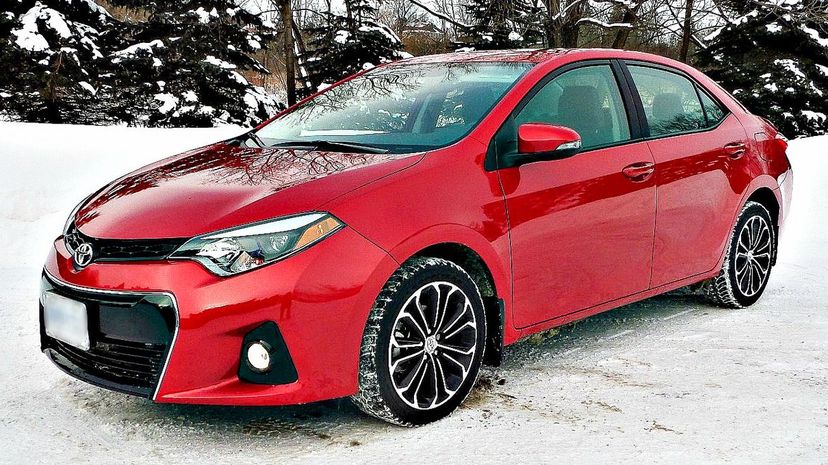
The Toyota Corolla surpassed the VW Beetle to become the best-selling nameplate in the world back in 1997. It has been in production since 1966 and is still available today in most countries.
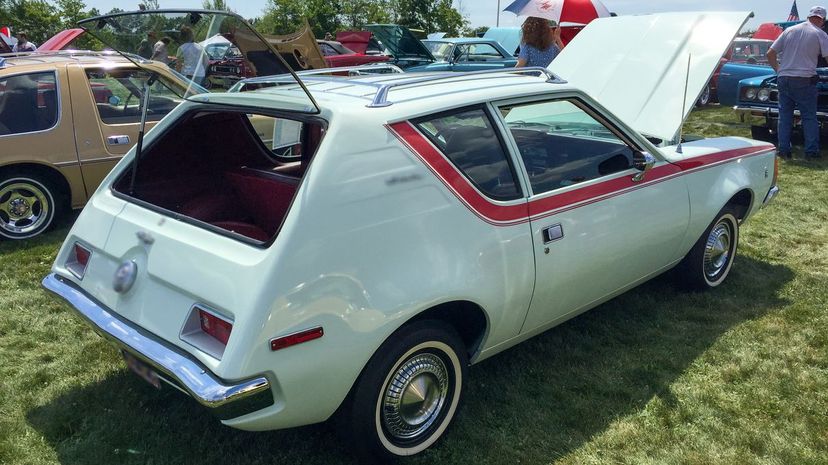
The AMC Gremlin was made from 1970 until 1978. While not a winner of any beauty contests, it was still a remarkably popular vehicle. They called it an American-built import because it was designed to compete with popular imports like the VW Beetle and the Toyota Corolla.
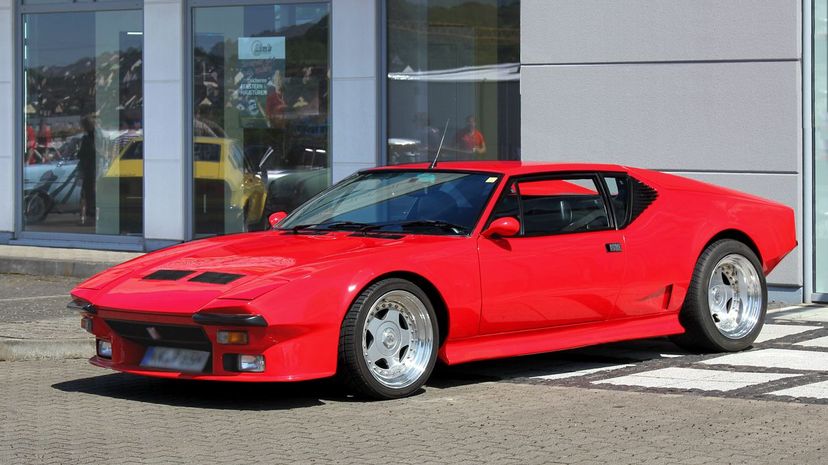
Produced from 1971 to 1992, the De Tomaso Pantera was a great-looking car that struggled with some design elements. Poor headroom meant tall drivers barely fit in the car, and resting an arm on the center console would activate the cigarette lighter.
Advertisement
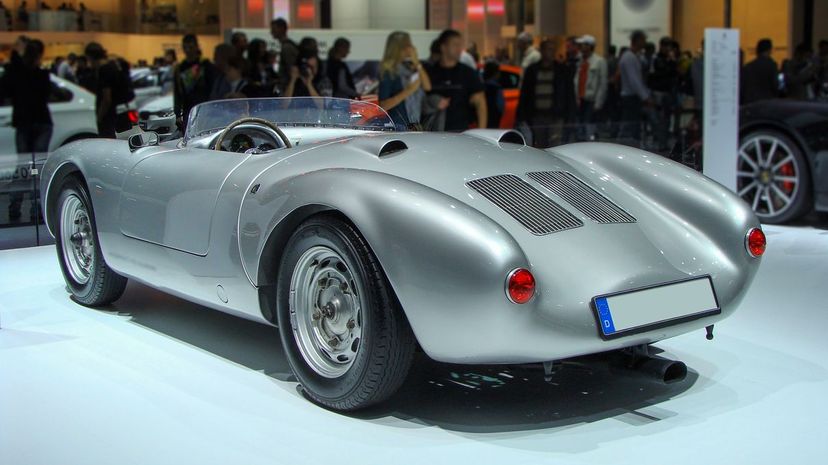
Porsche's 550 Spyder was known as the "giant killer," and it's also the car James Dean was driving when he got into his fatal accident. Word is these cars were designed so low that in Italy you could drive them right under railway crossing arms if you ducked.
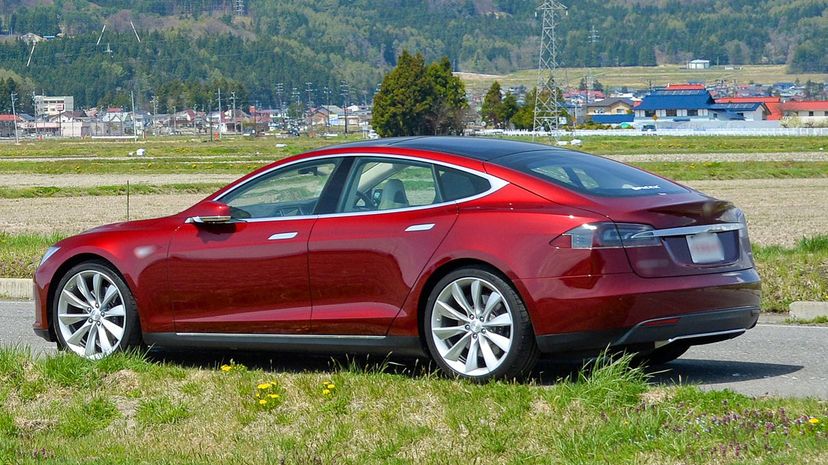
Though not the best-selling electric car in the world - that's the Nissan Leaf - the Tesla Model S has the greatest range of any electric car. You can travel 373 miles on a single charge, which is actually double what some other electric cars are capable of doing.
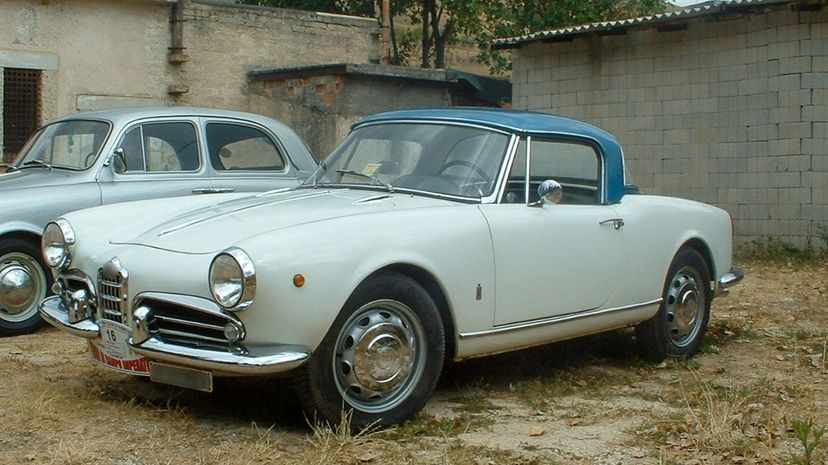
Alfa Romeo has made three different Giuliettas. The first, the 750/101, was produced from 1954 to 1965. Another Giulietta run was rolled out in 1977 and was known as the 116. The final Giulietta run, the 940, has been in production from 2010 until the present.
Advertisement
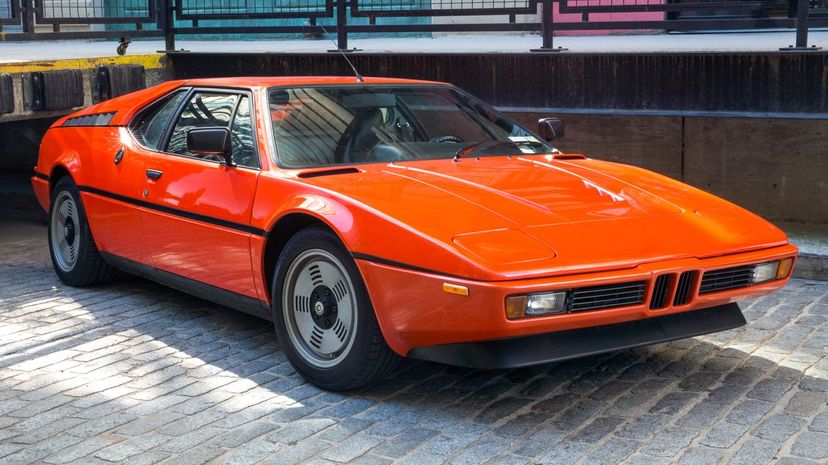
BMW's M1 was made in 1978 for homologation so they could race. Originally it was supposed to be designed in conjunction with Lamborghini, but issues between the two companies resulted in BMW going it alone and producing one of their most famous designs.
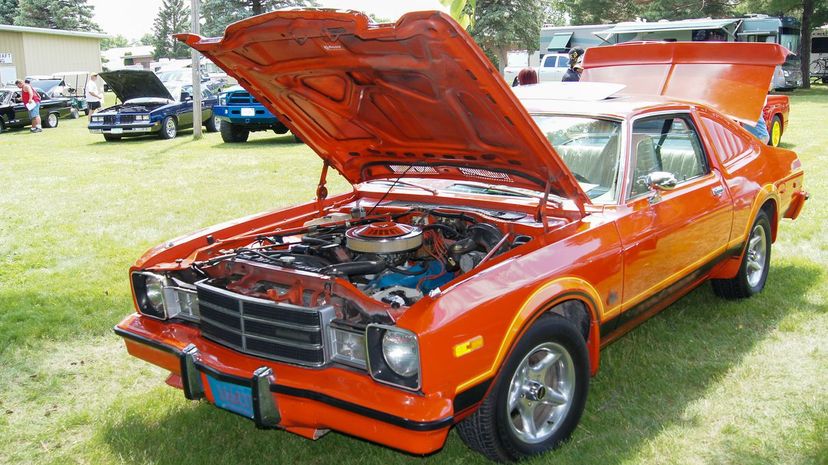
Plymouth paid Warner Brothers to license the Road Runner name and use the image of the character and Wile E. Coyote in the ads for the car. They also spent $10,000 to develop a horn that beeped like the Road Runner from the cartoon.
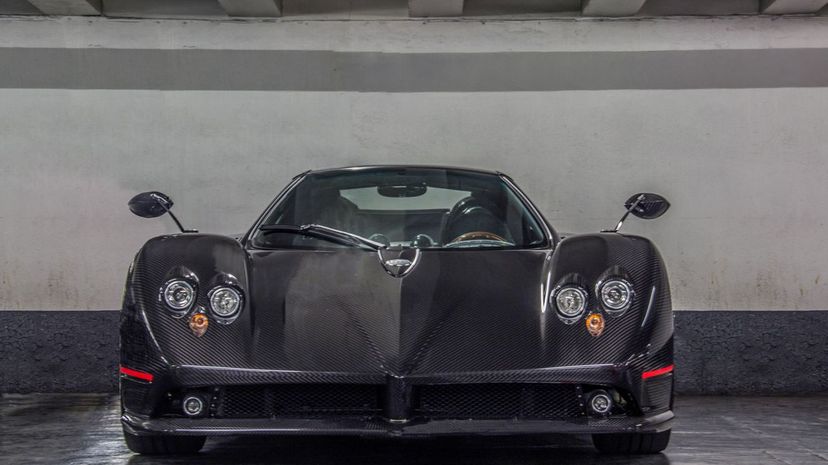
If you go to Argentina, you can experience the Zonda wind, which is where the Pagani Zonda got its name. The car was manufactured from 1999 until the present. Keep in mind, however, that the car is not street legal in the U.S. - it lacks the proper emission controls and has never been crash tested by the NHSTA.
Advertisement
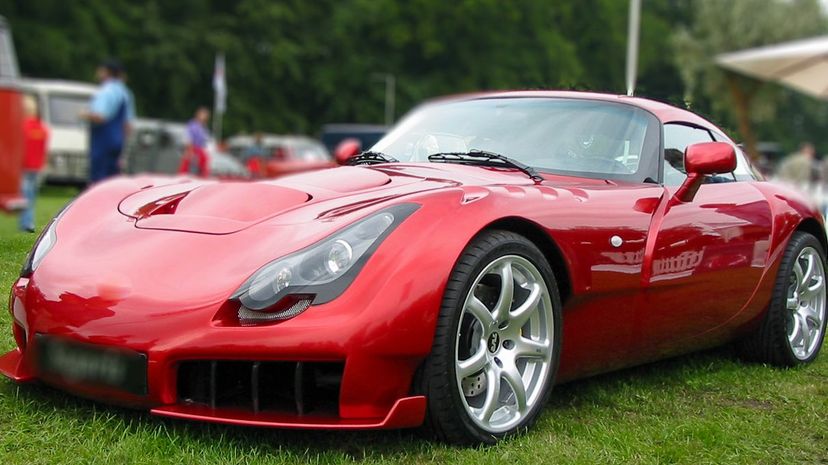
Produced from 2005 until 2006, the TVR Sagaris was known for exceptional acceleration and speed, but at a cost. The car didn't have ABS brakes or traction control because the designer thought those safety features made drivers overconfident. The result was a car with speed and exceptionally poor handling. A sagaris, by the way, is an ancient Asian weapon.
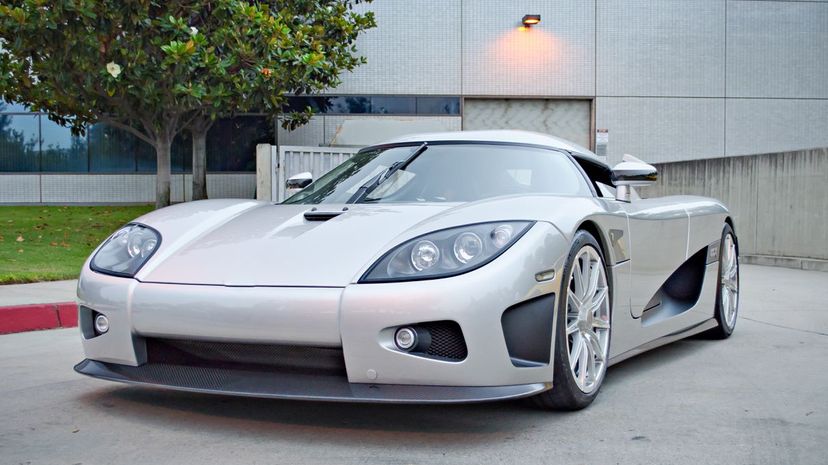
If you've never seen how the Koenigsegg doors open, do yourself a favor and Google it - the action is quite remarkable. The technique involves the door pulling out and spinning up and away from the car. It's very sci-fi.
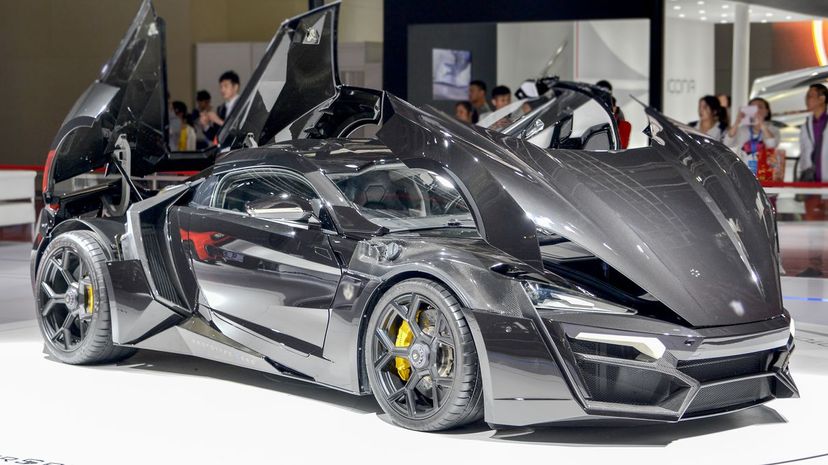
The insanely extravagant Lykan Hypersport was the first sports car ever designed and manufactured in the Middle East. The $3.4 million price tag included 420 diamonds, totaling 15 carats, which could be swapped for other stones like rubies or sapphires if you were a fan of some color.
Advertisement
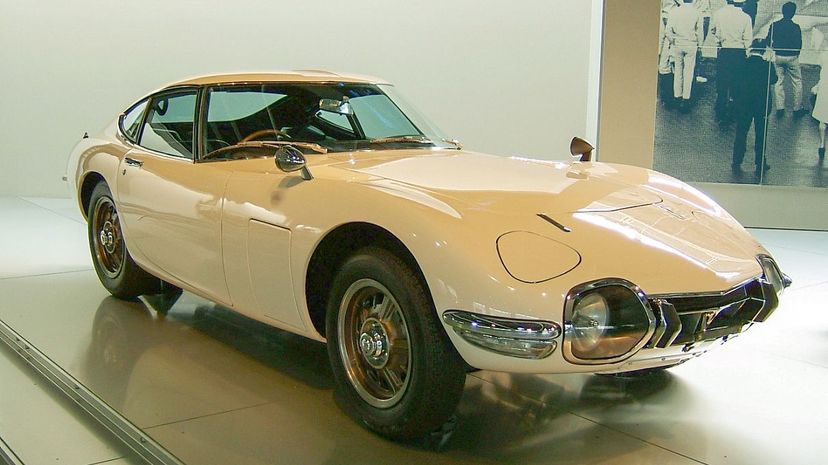
The Toyota 2000GT was a collaboration between Toyota and Yamaha, ostensibly to prove a point on the world stage. It was the first Japanese car to be built with a design and aesthetic comparable to European sports cars of the era, demonstrating a massive innovation in the Japanese auto industry.